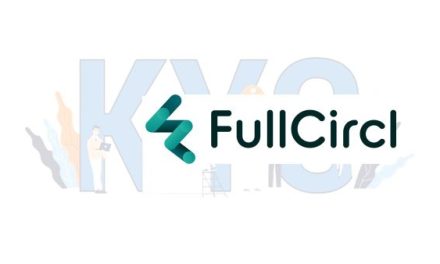An Interview done by The Paypers with Giovanni Angelini, President for Europe and Africa at Western Union. He shares his expertise and insights into the future of digital wallets and real-time cross-border payments and what we should expect from this field in 2023.
As more consumers take advantage of digital wallets and banking apps, how will this impact the overall digital customer experience?
One thing is certain: as an industry, we are now operating in a new environment. Over the past two years, the pandemic turbo-charged developments that otherwise would probably have taken several years to materialise. This is a new landscape, where customers, increasingly ’agnostic‘ in use of payment platforms and channels, constantly evaluate speed, flexibility and transparency, to make their money transfer decisions.
With customers ready to change payment and financial services providers sometimes after a single delayed transaction, or when a website that is down for a few minutes, investing in new, innovative ways to enhance customer experience is imperative. At the same time, strong compliance capabilities to counter the rise in fraud is imperative and of strategic priority.
Will 2023 be the year of real-time cross border payments?
The complexity of moving money and information across the world is often underestimated. We have all become accustomed to paying friends, or splitting restaurant bills on an app. The cross-border reality is much more complicated. And it is more complicated as, in the case of Western Union, we have 20,000 ’corridors’, or country-pairings, that we serve. When it comes to speed and compliance, as an industry, we have made significant strides towards that goal.
So, real-time is one element of what the industry should be looking to achieve in the next year, and the next decade. We need to find our ‘holy grail’: a solution allowing cross-border payments to be immediate, affordable, universal, and settled in a secured environment.
How do we move forward? The payments sector has always been at the forefront of innovation. However, the challenge in Europe and across the world, is to ensure that consumer protection and transparency are encouraging innovation which will allow the industry to provide for the payments solutions consumers are looking for. To that, policy makers should review barriers in regulation in adopting new technologies by the private sector. Striking the right balance then is more important than ever, especially in Europe.
More broadly, in the next ten years, as an industry, how do financial services providers strike the right balance of digital and physical customer experience?
We try to bridge the digital and retail worlds. The the sector needs to invest in a true omnichannel experience for customers, across the board. Customers also seek flexibility more than ever before. At Western Union, we want to implement a single architecture for retail and digital. This, with the expansion of our ecosystem, including our digital banking app, will allow our customers to have more options to interact with us through the channel of their choice for a true omnichannel experience, even switching channels mid-transaction.
Our platform will be able to identify a customer irrespective of the channel they use—and treating them like customers versus transactions.
How can we address financial inclusion in a digital first age?
Financial inclusion, catering to the needs of the hundreds of millions of underbanked or unbanked people around the world, should be a top priority for businesses in our sector, including Western Union. With divisions rising across the world, the last thing our societies and economies can afford is cutting out substantial parts of the population from vital access to financial services.
New technologies can foster financial inclusion. Let’s take Africa, for instance, where mobile telephony enabled millions to have access to financial and other vital services and helped the continent leapfrog an entire stage of technological development. However, we should do more. The World Bank has identified financial inclusion as a key enabler to reduce extreme poverty and boost shared prosperity, and the G20 have also undertaken a commitment to advance the cause. A continued national, regional, and trans-national push leveraging the joint power of governments and financial providers, a renewed focus on financial education, digitisation of social payments and other policies delivered at scale, are all key initiatives in that effort.
What does the future of payments look like for Western Union?
We have evolved many times in our 171-year history, but we always remained a global technology and financial services company. From launching the first consumer-to-consumer money transfer business in 1871, to our digital banking app this year, we are always changing, adapting, and evolving. Today, we have a retail and digital footprint providing payments and financial services across 200 countries and territories around the world.
We recently launched Evolve25: a three-year strategic programme that will see our company evolving from being focused primarily on cross border remittance into being the world leader of branded payments and accessible consumer financial services, serving the aspiring populations of the world. We see huge opportunity in the delivery of this strategy.
Our ’pay-out to account‘ network operates in over 100 countries with over 5 billion accounts. We see this as a strategic asset and driver of future growth. We continue investing in our pay-out-to-account capabilities, adding new markets and, when it comes to real time delivery, 70% of the principal being delivered to an account in real time.
In Europe, we recently launched our integrated digital banking and international money transfer app, which represents a new way to do digital banking and transfer money globally.
About Western Union
A global leader in cross-border, cross-currency money movement, and payments. Western Union’s platform provides seamless cross-border flows and its leading global financial network bridges more than 200 countries and territories, and approximately 130 currencies. We connect consumers, businesses, and governments through one of the world’s widest reaching networks, accessing billions of bank accounts, millions of digital wallets and cards, and a substantial global network of retail locations.
Source: ThePaypers



























